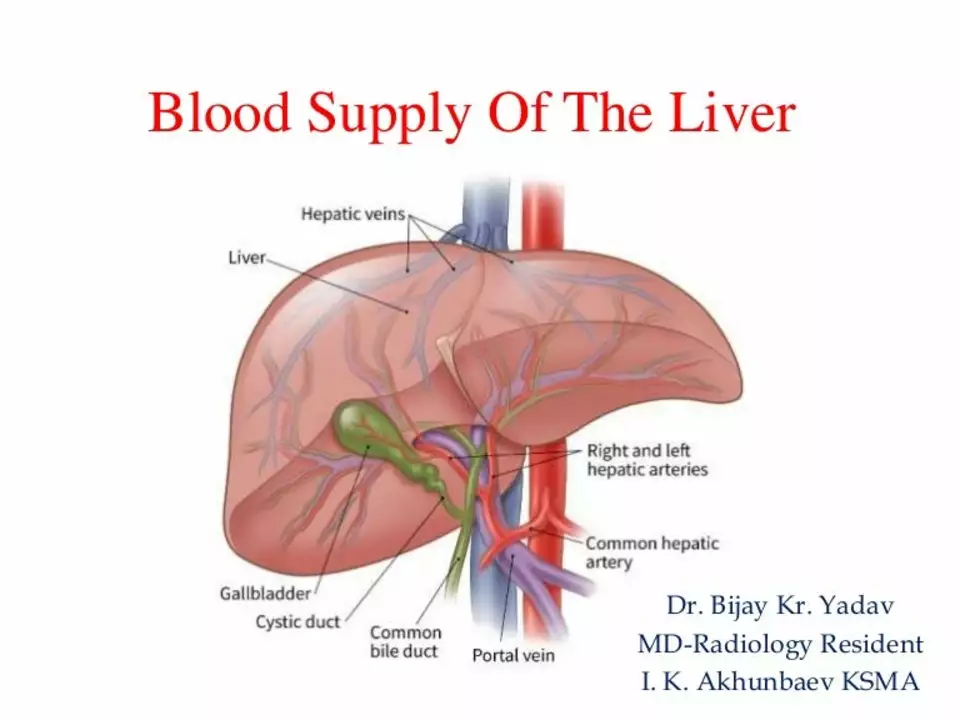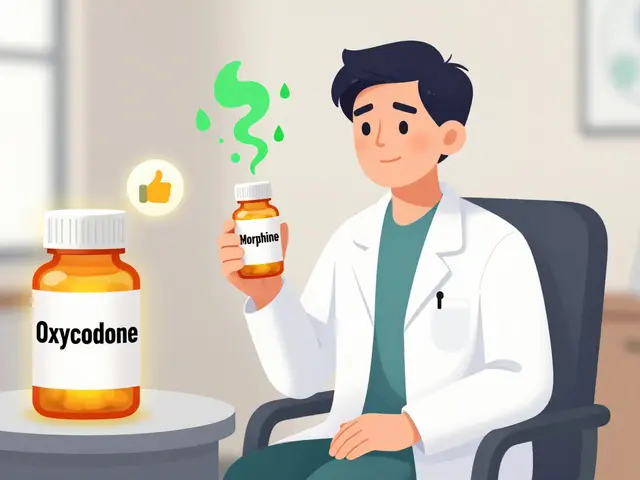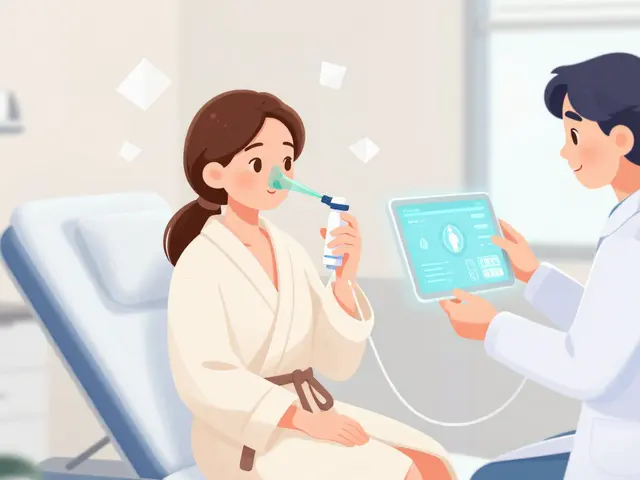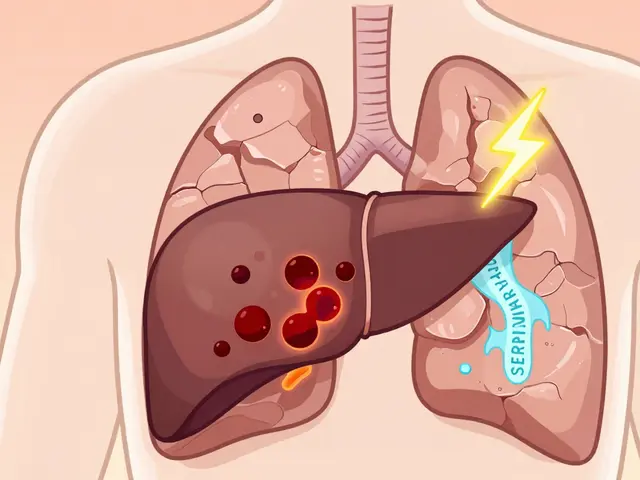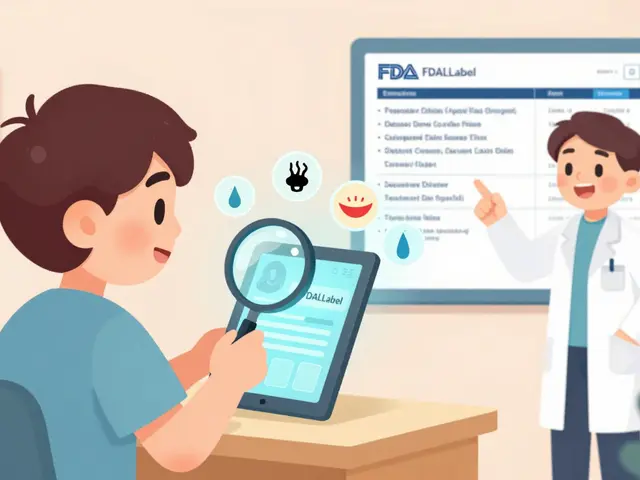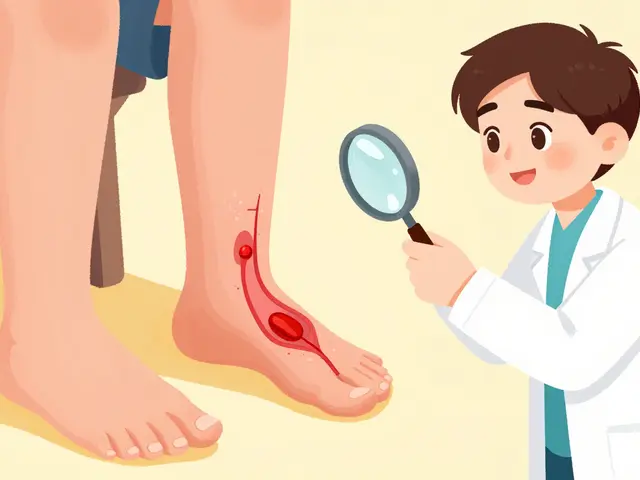Liver Health: What to Know About Drugs, Supplements, and Tests
Your liver works nonstop to filter drugs, process supplements, and keep toxins from building up. One damaged liver can make common medicines dangerous. So you need simple rules to protect it.
Watch for warning signs: dark urine, yellowing skin or eyes, nausea that won't stop, unusual fatigue, or persistent stomach pain. If any show up after starting a drug or supplement, stop and call your doctor.
Some medicines need routine liver checks. Statins like Lipitor can raise liver enzymes; antifungals such as fluconazole also carry liver risk. Stimulants and cognitive drugs like modafinil usually are safer but can cause problems in vulnerable people. Read drug pages on this site to learn specifics and safe dosing.
Herbal doesn't mean harmless. Black seed oil, kava, high-dose green tea extract, and some weight-loss or bodybuilding supplements have been linked to liver injury. Our article 'Black Seed Supplement Dangers' explains interactions, typical symptoms, and safe limits.
Before you mix anything, check interactions. Statins plus certain antifungals or antibiotics can amplify liver stress. Combining supplements with prescription drugs is a common hidden risk. Use one change at a time so you can spot trouble early.
Practical steps to protect your liver
Check baseline liver tests if you start long-term meds that affect the liver. Ask your doctor for ALT and AST results and what levels would trigger a change. Limit alcohol while on medicine and avoid binge drinking entirely. Keep doses within recommended ranges and skip extra stacks or high-dose supplements.
Pick reliable sources. Online pharmacy reviews and product pages can help you compare safety and pricing, but prioritize articles that cite studies or official labels. On this site, read our Lipitor, Fluconazole, and supplement safety posts for clear, practical checks.
When to get medical help
If you have jaundice, severe belly pain, confusion, or prolonged vomiting, go to an emergency room. For milder signs like fatigue and stomach upset that start after a new drug or supplement, contact your prescribing clinician for advice and testing. Don’t wait for routine appointments if symptoms worsen quickly.
Keep a simple log: medicine name, dose, start date, and any new symptoms. This helps your doctor pinpoint causes faster. If you take multiple pills, ask for a medication review. Pharmacists are great at catching risky combos.
Finally, watch supplements marketed as 'natural liver cleanses'—most lack evidence and some make things worse. Stick to proven habits: balanced diet, controlled alcohol, safe prescribing, and regular testing when needed.
A few specific steps make a big difference. Ask for baseline ALT and AST and repeat tests after six to twelve weeks for drugs known to affect the liver. Many clinicians stop or change a medicine if ALT or AST rise to more than three times the upper limit of normal, or sooner if you have jaundice or severe symptoms. Avoid taking acetaminophen with alcohol and keep daily acetaminophen under 3,000 mg unless your doctor advises otherwise. Stay current on hepatitis A and B vaccines if you're at risk. If you use online pharmacies or buy supplements, choose vendors with clear labeling and third-party testing. For more reading, check our posts on Lipitor, Fluconazole, and Black Seed Supplement Dangers for drug-specific advice and red flags.
Questions? Use our contact page to reach the editor or ask your pharmacist for a medication review today.
Melphalan and the Liver: Understanding Hepatic Toxicity and Management Strategies
In my recent research, I delved into the effects of Melphalan on the liver, specifically focusing on hepatic toxicity and management strategies. I found that Melphalan, a chemotherapy drug, can cause liver damage in some patients, which is a concerning side effect. However, there are ways to manage and minimize these risks, including monitoring liver function tests and adjusting dosages. Additionally, some studies suggest that using other medications alongside Melphalan may help protect the liver. Overall, it's essential for healthcare providers and patients to be aware of these risks and management strategies to ensure the safe use of Melphalan.
Read More